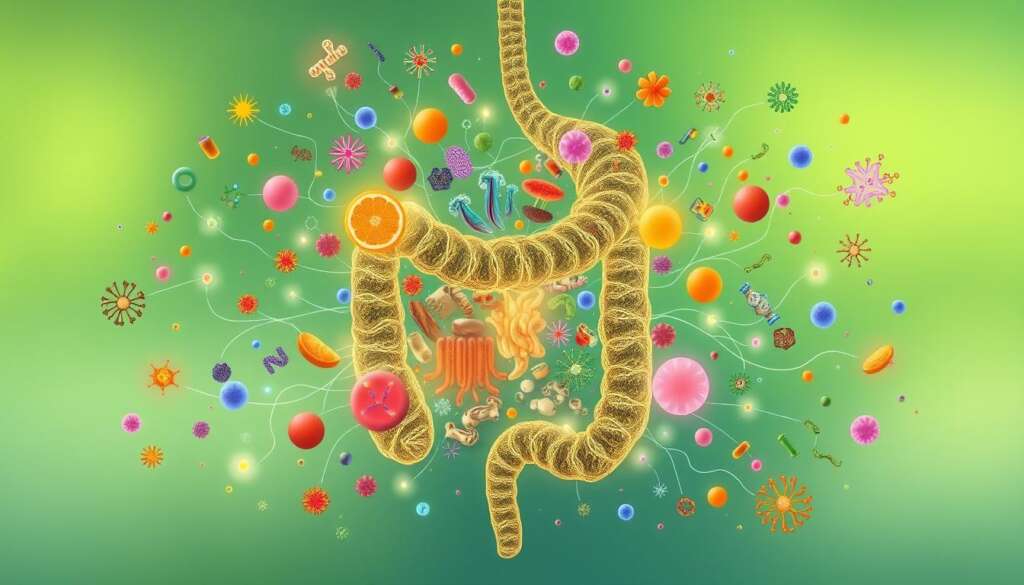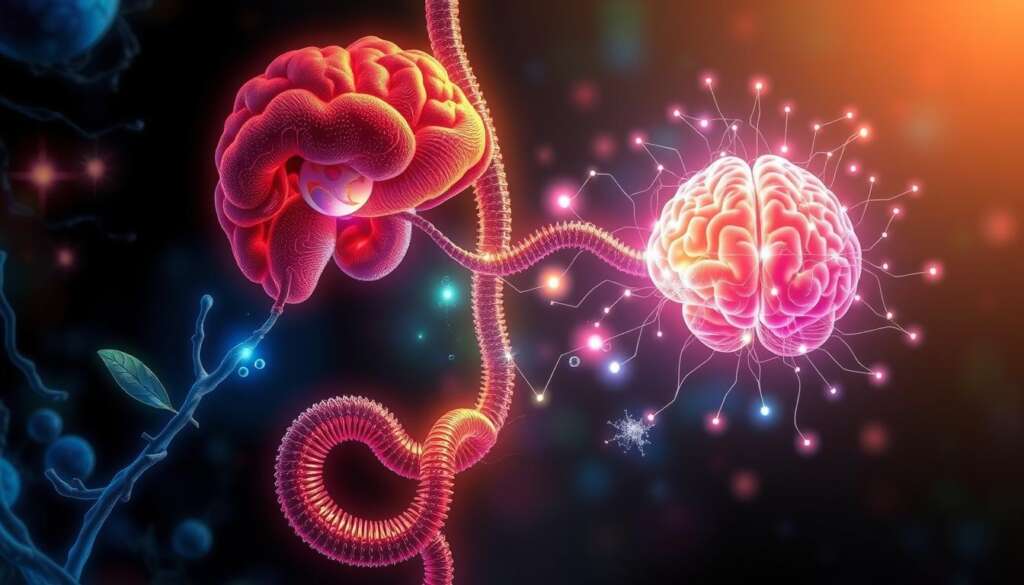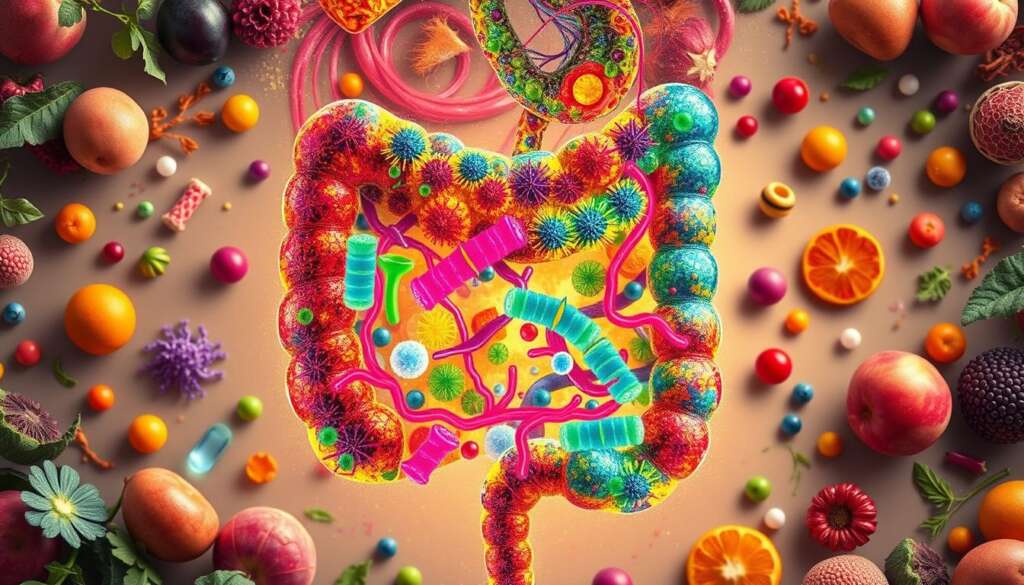In today’s digital world, taking breaks from technology is more important than ever. This article will show you the benefits of digital detox. It will also give you tips to start improving your well-being and living more mindfully.
Our use of technology and staying connected all the time is growing. It’s key to take breaks and control our digital habits. Digital detox can help our mental health, productivity, and relationships. It helps us reduce screen time, be more mindful, and enjoy nature and hobbies.
If you want to balance work and life better, focus more, or escape the digital chaos, this article is for you. It will help you start your digital detox journey. Get ready to disconnect, relax, and find more control, clarity, and connection in your life.
Understanding the Need for Digital Detox
In today’s world, technology controls our lives. We’re always connected, from waking up to bedtime. This constant digital load harms our mental, physical, and social health.
The Impact of Constant Connectivity
Being always connected distracts us from the present. It increases stress, anxiety, and depression. The blue light from screens also messes with our sleep, making us tired and less sharp.
Signs You Might Need a Digital Break
Do you constantly check your phone or have trouble sleeping? Feeling overwhelmed by digital life is a sign you need a break. Other signs include being less productive, strained relationships, and feeling unhappy with life. Seeing these signs is the first step to a digital detox.
“The greatest weapon against stress is our ability to choose one thought over another.” – William James
Knowing how constant connection and digital fatigue affect us is key. We’ll look at the benefits of digital detox and how to start in the next sections.
Embracing Digital Detox: Benefits and How to Get Started
Stepping away from digital stimulation can change our lives. It boosts our physical, mental, and emotional health. Digital detox helps us focus better, connect deeper, and live more mindfully.
One key benefit is unplugging from technology and reducing screen time. This can improve sleep, reduce eye strain, and lessen digital fatigue. It also opens up time for digital wellness practices like meditation, journaling, or outdoor activities.
“The ability to focus has become a superpower in our distracted world.” – Cal Newport, author of “Digital Minimalism”
To start your digital detox, take practical steps. Set screen time limits, make tech-free zones at home, or take digital breaks. These steps help you control your tech use and improve your health.
Embracing digital detox can make you mentally clearer, more productive, and healthier. So, start unplugging, recharge, and reconnect with the world around you.
Improved Mental Health and Well-being
Stepping away from digital devices can greatly improve our mental health. It helps us feel less stressed and anxious. By unplugging, we become more mindful and present in our surroundings.
Studies show that digital detox can also improve our sleep. Devices emit blue light that messes with our sleep patterns. Cutting down on screen time before bed leads to better sleep and emotional health.
“Digital detox has been a game-changer for my mental health. I feel more centered, focused, and in tune with my thoughts and feelings.”
Going on a digital detox does more than just reduce stress. It helps us connect deeper with ourselves and the world. This leads to a more positive and fulfilling life, away from digital distractions.

Embracing digital detox is more than a trend. It’s a powerful way to improve our mental well-being. By taking time to unplug, we can experience the deep mental health benefits it offers.
Increased Productivity and Focus
In today’s fast-paced world, it’s easy to get lost in endless notifications and social media. A digital detox can help us find our way back to productivity and focus. By cutting out distractions and being mindful, we can take back our time and attention. This leads to better work-life balance and efficiency.
Eliminating Digital Distractions
A digital detox helps us get rid of constant digital distractions. These distractions can make it hard to focus and be productive. By setting limits on our digital use, we can focus better on what’s important.
Cultivating Mindfulness
Along with reducing distractions, a digital detox promotes mindfulness. Taking a break from devices lets us practice being present. This improves our focus and clarity, helping us do better in work and life.
Choosing a digital detox is a smart move for our well-being. It helps us manage distractions and stay mindful. This way, we can enjoy a more fulfilling and balanced life.

Strengthening Relationships and Social Connections
Taking a break from digital distractions can deeply impact our personal relationships. It lets us spend quality time with loved ones, building stronger bonds. This way, we can create deeper and more meaningful connections.
One big plus of a digital detox is the improved social connections it brings. Without screens, we’re more present and attentive with friends and family. This leads to better communication, deeper relationships, and a stronger sense of belonging.
“Putting down our devices and being fully present with loved ones can reignite the spark in our relationships and help us create cherished memories together.”
A digital detox also makes us focus on quality time with loved ones. We might plan a family outing, have a game night, or share a meal without tech. This reduces our reliance on social media and strengthens our bonds, creating a sense of community.

By taking a digital detox, we can shift our focus to the people who matter most. This change leads to enhanced communication, more fulfilling relationships, and a greater appreciation for the connections that enrich our lives.
Reconnecting with Nature and Hobbies
Stepping away from digital devices during a digital detox is a chance to reconnect with nature and hobbies. Outdoor activities and mindful experiences bring solace and joy. They help us find inspiration and a renewed sense of joy in our free time.
Outdoor Activities for Digital Detox
Nature has a deep impact on our mental and physical health. Hiking, camping, or walking in a park can ground us and reduce stress. These activities help us connect with the world and live in the moment.
Exploring nature during a digital detox can also spark old hobbies. Painting, playing music, or starting a new craft project can reignite our creativity. These activities bring a sense of accomplishment and fulfillment.

By stepping away from digital distractions, we appreciate the world more. Nature-based activities are a powerful antidote to our tech-driven lives. They help us find balance and inner peace.
Developing a Digital Detox Plan
To fully enjoy a digital detox, you need a good plan. This plan should include setting realistic goals, setting boundaries, and finding sustainable ways to stay well online. By planning ahead, you can take back control of your digital life and build a better relationship with technology.
Setting Realistic Goals
The first step is to set realistic goals. You might want to cut down on social media, reduce screen time during meals, or have device-free time for fun. Setting goals you can reach helps you stay on track and see how far you’ve come.
Creating Boundaries and Limits
It’s key to set clear limits on your digital use for a successful detox. This could mean turning off notifications, making some areas of your home device-free, or taking regular breaks from screens. Setting these limits helps you avoid the constant urge to check your devices and keeps your online and offline lives balanced.

Creating a digital detox plan is about finding the right balance. By setting goals, setting limits, and starting new habits, you can break free from constant digital distractions. This way, you can enjoy the benefits of digital detox and find more joy and focus in your life.
Overcoming Challenges and Sustaining the Habit
Starting a digital detox can change your life, but it comes with its own set of challenges. I’ve faced many obstacles on my journey to a healthier tech use. The urge to check my devices all the time and the fear of missing out are just a few.
To get past these challenges, building a supportive network is crucial. I’ve found friends who share my goals for digital detox. We help each other stay on track and avoid falling back into old habits.
Improving continuously is also essential. I regularly check how I’m doing and make small changes to my routine. This way, I can keep my digital detox up to date with my changing needs and goals.

























